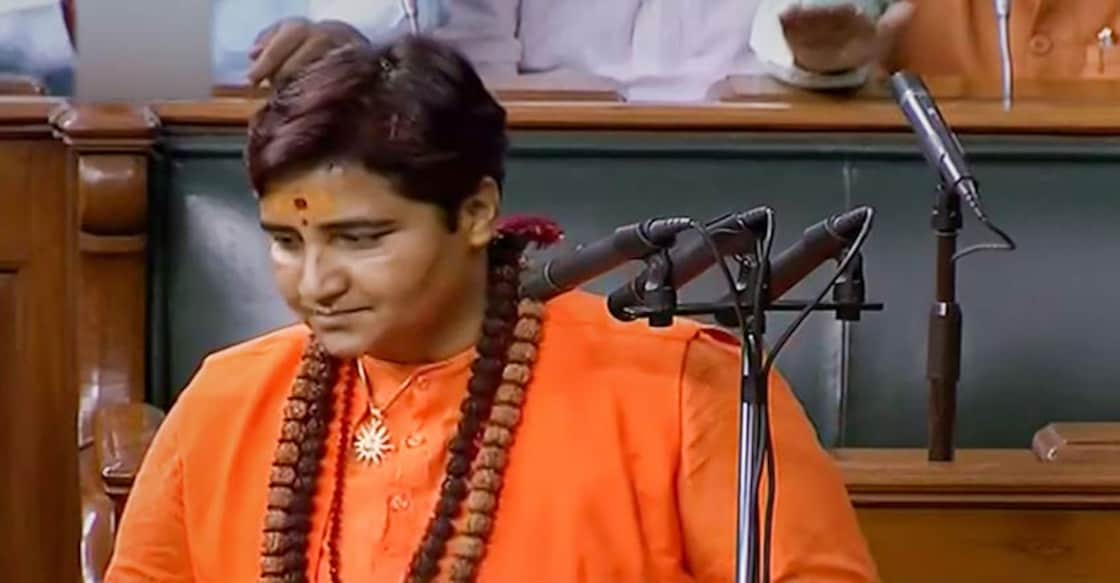Pragya Thakur creates controversy with her name during oath taking

Mail This Article
New Delhi: BJP MP from Bhopal Sadhvi Pragya Singh Thakur created a controversy on the first day of 17th Lok Sabha Monday when she suffixed the name of her spiritual guru with hers while taking oath, drawing objections from the Opposition.
Amid protests and shoutings, Thakur said that it was her full name and that she had already mentioned it in the form filled for oath taking.
The mention of Swami Purna Chetnanand Avdheshanand Giri as suffix to her name Sadhvi Pragya Singh Thakur evoked sharp reaction from the Opposition members who said that such a thing was not permitted.
She insisted that the suffix was part of her full name, resulting in an uproar from opposition and slogan shouting in her favour from the ruling benches.
The Pro-tem Speaker Virendra Kumar sought to know from the Lok Sabha secretary general, the full name.
Amid noise and objections, Kumar ruled that only the name written in her election certificate issued by the returning officer would go on record.
Thakur, the Malegaon blast accused, took oath in Sanskrit and ended it with 'Bharat Mata Ki Jai' slogan.
Thakur routed Congress stalwart Digvijay Singh to enter the Lok Sabha for the first time.
Later, BJP members continued to raise 'Bharat Mata Ki Jai' slogans, teasing the Opposition.
They started raising slogan after oath taking by every BJP member.
After Ganjendra Umarao Singh Patel (BJP) completed his oath with 'Bharat Mata Ki Jai', N K Premchandran (RSP) urged the pro-tem speaker to maintain the prescribed format of the oath.
The pro-tem speaker ruled that the members stick to the format provided.
After this, the members of BJP started adding 'Bharat Mata Ki Jai' after end of every oath.
Some of the prominent names who took oath from Madhya Pradesh included K P Yadav who defeated Jyotiraditya Scindia, Rakesh Singh, Ramakant Bhargava and Nakul Nath.
Indore MP Shankar Lalwani took oath in Sindhi.

